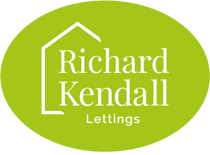Your home is your most valuable asset, and while the market is in a good position, it could be tempting to place your own price tag on it and try your luck. However, the reality is that you can’t rely on guesswork when it comes to determining your home’s true value. Let’s explore why.
1.Your local market is separate from the wider market
While the UK average asking price can give you a rough idea of how the market is holding up, local factors are more significant to the true value of your home. Factors such as proximity to amenities, school catchment areas, local crime rates, and quality of transport links all hold weight in the overall value of the property.
2.You could set an unrealistic price
Setting an unrealistic price could be more detrimental to your sale than you might think. For starters, many buyers use online filters to find suitable properties. So, if you’re asking price is too high, your home won’t land on their search page.
Secondly, your home’s asking price should be competitive. If similar homes in your local area are asking for much less, they’re likely to secure a buyer before you do.
Lastly, overpricing your home takes away some of your power to negotiate. An outlandishly high asking price can put off potential buyers, leaving you having to settle for an inferior offer. You could also be at risk of ‘gazundering’ or down-valuing later in the process, where your options could be limited, and again, you might have to settle for a much lower offer than you hoped for.
3.You could sell yourself short
Conversely, even a well-informed guess could have you selling yourself short. Without expert insight, you may miss current local trends that have caused your home to spike in value. Underselling your home is another example of setting an unrealistic figure, leaving you in a poor position to negotiate with the buyer and could cause you to settle on a lower price than your home deserves.
4.You may not fully understand your true borrowing capacity
Accurate property valuations are important to most major banks and lenders, and your buyer will most likely have one carried out early into the sales process. Guessing your home’s value is risky business when it comes to securing your next mortgage, as overestimating can leave you in a tricky position once your buyer has their valuation carried out.
You’ll need clarity on your borrowing capacity from the get-go before you can apply for a loan, as this could save you a great deal of time and uncertainty when applying for your next mortgage deal.
5.Your home is unique
Market averages are important, but they aren’t everything. Unlike online assessments or guesses based on similar properties, an expert valuer will consider your home’s specific characteristics and overall condition before they settle on a figure. This includes things such as layout, repairs and renovations, building age, and anything that makes your home unique and enticing to today’s buyers.
Don’t wonder about your home’s worth - book a professional face-to-face valuation









